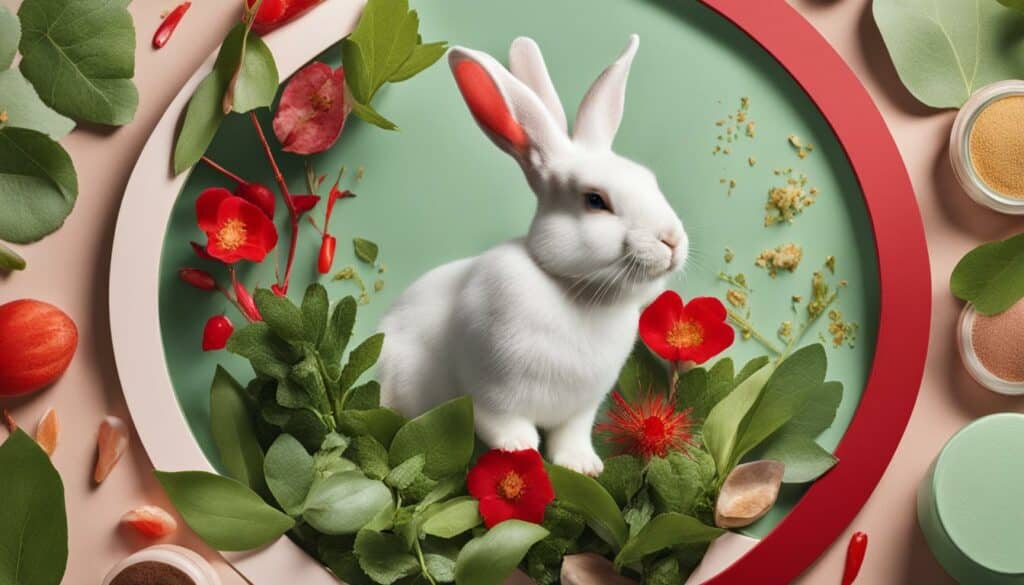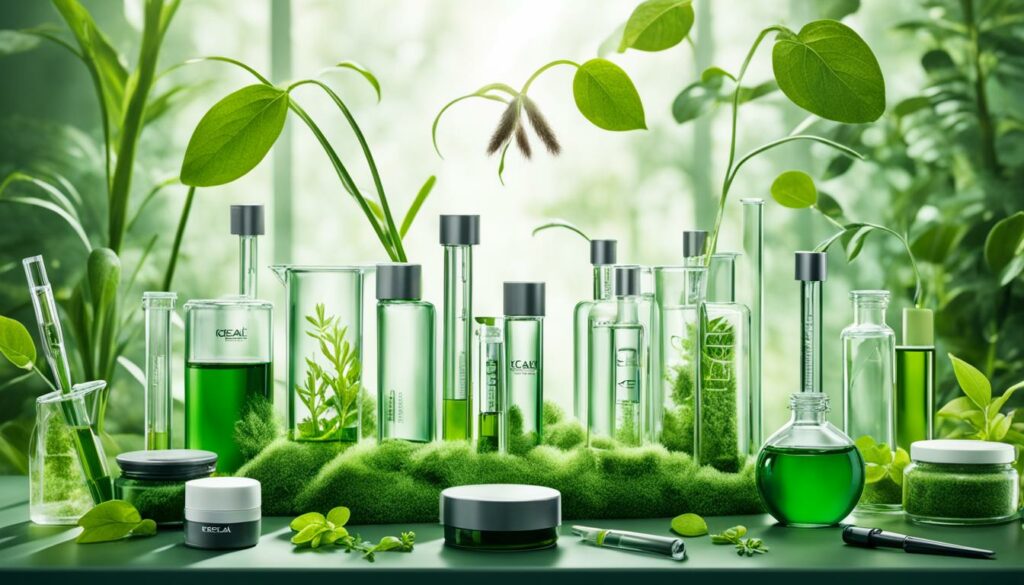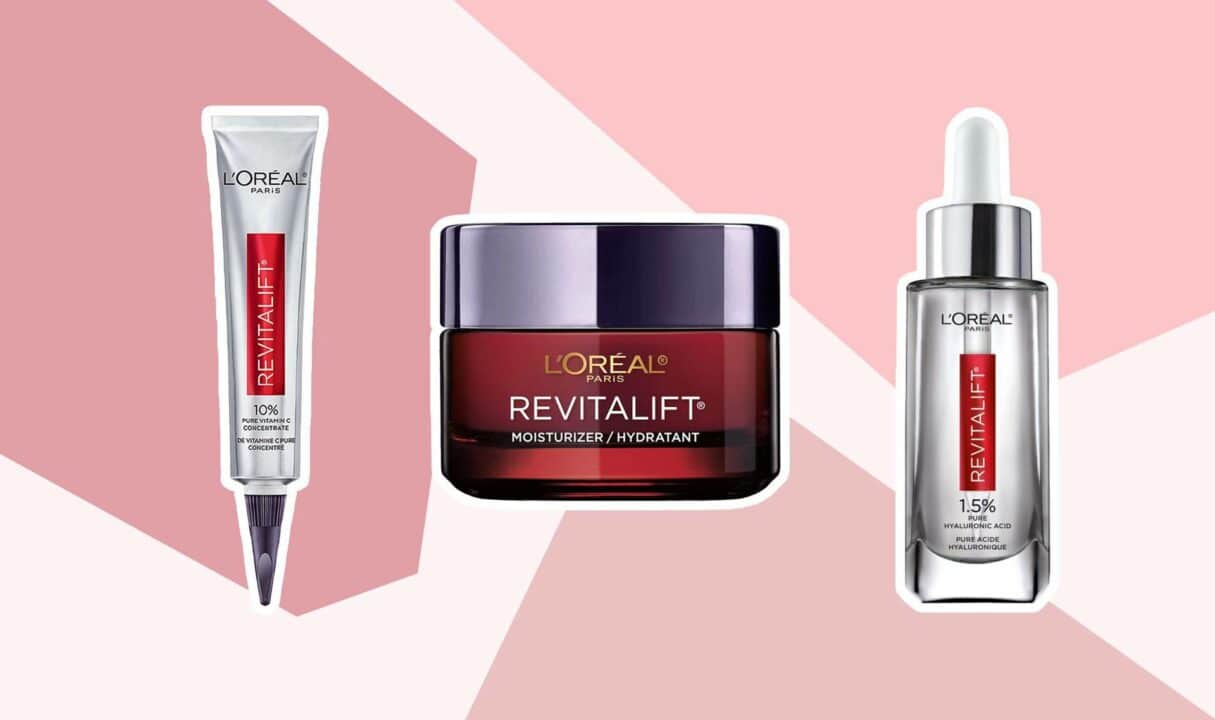As a beauty enthusiast committed to the pursuit of ethical practices within the industry, my check into whether L’Oréal upholds cruelty-free and vegan principles has offered quite the conundrum — to say the least.
The brand, a global leader in the cosmetics sphere, says that it opposes animal testing and that they are working towards a future where beauty is synonymous with cruelty-free. Yet, despite their affirmations, details have emerged in my findings indicating that L’Oréal products may still be entangled in the longstanding debate surrounding animal cruelty and ethical beauty.
Given the complexity in global cosmetic policies, especially in countries with stringent regulatory requirements, a close examination is required to understand how loyal L’Oréal remains to the admirable standards of cruelty-free beauty.
My analysis peels back the layers of L’Oréal’s policies and practices, specifically their standing in relation to L’Oréal animal testing, their range of L’Oréal cosmetics and the nuanced definition of what constitutes vegan beauty products.
To brandish the label ‘L’Oréal cruelty free’ is to make a bold statement; however, is this more a marketing facade than a reflection of reality?
Table of Contents
Chirpers Check List
Is L’Oréal a cruelty-free brand?
No, they aren’t certified cruelty-free. The situation isn’t black and white though. L’Oréal states that they do not test their products on animals and are committed to alternative methods.
Has L’Oréal ceased using ingredients that are tested on animals?
L’Oréal claims to have stopped testing its ingredients on animals since March 2013. Nonetheless, they admit there may be exceptions for ingredients used for medical or health purposes. While they endorse and actively work on alternative testing methods, the presence of these exceptions means that some of their ingredients may still be animal-tested under specific circumstances.
Are L’Oréal’s products vegan?
No, L’Oréal is not a fully vegan brand. While they do offer some vegan products, not all of their products are vegan as some may contain animal-derived ingredients or be tested on animals. It’s best to check the specific product ingredients to determine if it is vegan.
Does L’Oréal own any brands that are certified cruelty-free?
Yes, L’Oréal owns brands like Garnier, which have obtained cruelty-free certification. However, it’s important to investigate each of L’Oréal’s subsidiary brands independently, as not all have taken the same stance or achieved the same certifications regarding cruelty-free and vegan beauty standards.
How does L’Oréal approach regulatory animal testing in markets like China?
L’Oréal has engaged in a long-term initiative working with Chinese authorities to promote alternative, non-animal testing methods. This effort reflects a desire to comply with local regulations while also striving to adopt more ethical practices. However, while progress has been made, the company’s products sold in China can still be subject to animal testing by law, which impacts the company’s cruelty-free claims.
What should I look for when shopping for genuinely cruelty-free and vegan beauty products?
When shopping for beauty products that align with ethical standards, it’s wise to look for third-party certifications like those from PETA, Leaping Bunny, or Vegan Society. These logos indicate that a product meets strict cruelty-free and vegan criteria. Additionally, researching brand practices and ingredient sourcing can provide further assurance about the ethical nature of the products you choose to support.
How can my choice of beauty products impact animal welfare?
By choosing to support brands dedicated to cruelty-free and vegan values, you’re directly impacting the demand for ethical products. This increased demand can lead to a reduction in animal testing across the beauty industry, promoting the development of alternative testing methods and contributing to higher animal welfare standards globally.
Is L’Oréal considered “clean”?
L’Oréal Paris has revealed a vegan, clean beauty collection exclusive to Target, featuring botanical-derived, non-stripping hair care ingredients but not all products are clean though.
So L’Oréal is a Clean Beauty Brand?
L’Oréal has made efforts to offer clean beauty products, such as its vegan, sulfate-free collection exclusive to Target but not on all their product range.
Is L’Oréal fragrance free
L’Oréal offers a range of fragrance-free skincare products. For example, the Revitalift Anti-Wrinkle Firming Moisturizer is available in a fragrance-free option
Is L’Oréal paraben free?
L’Oréal does offer a range of paraben-free products, including hair care and skin care items.
Is L’Oréal sustainable
L’Oréal has made significant strides in sustainability, with a focus on environmental and social responsibility. The company has implemented a global sustainability program called “Sharing Beauty With All,” which includes initiatives to reduce its environmental impact and improve the sustainability of its products. L’Oréal has set ambitious sustainability targets for 2030, such as using 100% recycled or bio-based plastics in its
product packaging and achieving carbon neutrality at all its sites.
Key Takeaways
- L’Oréal’s claims of being anti-animal testing are complicated by their market presence in regions where such practices are required by law.
- There’s a noticeable dissonance between the company’s public stance on animal cruelty and the operational reality guided by various countries’ regulatory frameworks.
- Garnier, a L’Oréal subsidiary, has achieved cruelty-free certification, spotlighting the potential for ethical practice within the wider group.
- It’s vital to understand the difference between ‘cruelty-free’ and ‘vegan’ in the context of L’Oréal products and the beauty industry at large.
- The beauty giant’s history, including legal challenges and policy nuances, adds layers of complexity to their ethical positioning.
- Discussion on what genuine cruelty-free and vegan standards entail is ongoing, with L’Oréal’s actions forming a central part of this critical narrative within the beauty sector.
Understanding L’Oréal’s Cruelty-Free Claims
When I delve into the ethical beauty discourse, L’Oréal’s name frequently surfaces attached to an array of products boasting cruelty-free and vegan characteristics. Understanding these claims, however, requires us to untangle their public narratives from their actions on the ground, particularly regarding their animal testing policies and the impact they bear on the global cosmetic market’s ethical standards.
Examining L’Oréal’s Public Statements and Animal Testing Policy
The discrepancies between L’Oréal’s proclaimed animal testing policies and the actual execution of their practices prompted me to scrutinise their public statements. A company’s reputation hinges on its integrity, and for L’Oréal, this means upholding a consistent stance on ethical issues. Despite their vocal commitment to ending animal testing, there are regulations that cast a shadow on L’Oréal’s claims of being cruelty-free, particularly when considering their ambitions in the loreal vegan product line.

The Influence of Regulatory Requirements on Animal Testing
My research uncovers an intricate web of animal testing policies that L’Oréal navigates within differing jurisdictions. The central paradox lies in their mission to innovate within the cosmetic space while also adhering to various international regulatory mandates. Such circumstances underscore the enormity of challenges global brands face when striving to meet ethical beauty standards and highlight why the global cosmetic market remains a battleground for animal welfare advocacy.
Analyzing L’Oréal’s Position in Global Markets With Animal Testing Laws
As I cast a wider net to understand the implication of L’Oréal’s operations across global markets, it’s evident that animal testing laws in countries like China present a profound dilemma. Their market presence there is not just about capitalising on emerging market opportunities; it also tests the mettle of their commitment to cruelty-free principles. The clash between marketing loreal products as cruelty-free, while bow-tied by legislation that requires animal testing, poses significant challenges to their claim of leadership in ethical beauty standards.
In conclusion, L’Oréal’s narrative as an ethical trailblazer in the beauty industry hangs in the balance. Their dedication towards advancing cruelty-free practices amidst stringent regulatory landscapes suggests an ongoing journey rather than a destination reached. The myriad complexities within these discussions lead me further into the quest for clarity regarding what genuine ethical beauty standards look like in today’s global cosmetic market.
Is L’Oréal Cruelty Free and Vegan?
As I delve into the nuanced world of ethical cosmetics, the question of whether L’Oréal products can be considered cruelty free beauty and vegan beauty products emerges with complexity. It’s become evident that discerning between L’Oréal’s promoted image and the actual ingredients and testing practices proves to be quite the challenge.
Alongside the L’Oréal vegan claim, which posits that their products are free from animal-derived ingredients, one must examine the company’s stance on animal testing. L’Oréal has publicly declared they do not test their products on animals and advocate for alternative testing methods. Yet, the presence of L’Oréal in certain international markets that mandate animal testing by law casts a shadow over these assertions.

Understanding the distinction between ‘cruelty free’ and ‘vegan’ is crucial in this context. A product that is vegan does not necessarily qualify as cruelty free if it or its ingredients have been tested on animals at any point. Thus, while it is possible to find L’Oréal products that are vegan, this does not automatically guarantee that they meet all the criteria for being considered cruelty free.
The grey area where L’Oréal cruelty free claims reside offers a fascinating case study into the challenges faced by global beauty brands attempting to align their practices with ethical standards.
My exploration has led me to appreciate the intricacies of the beauty industry’s ethical practices and has provided a deeper insight into just how challenging it can be for multinational companies like L’Oréal to navigate these waters whilst striving to balance profitability with ethical considerations.
Exploring the Ethical Implications of L’Oréal’s Practices
L’Oréal’s Use of Animal-Tested Ingredients Post-March 2013
In 2013, L’Oréal proactively set a benchmark for curtailing the use of animal-tested ingredients. Nevertheless, the ambiguity ensues as they concede to the potential inclusion of such components for medical objectives. This discernment pulses through the heart of L’Oréal ethical practices, revealing a complexity that, to my mind, necessitates further transparency. Questions linger on the genuineness of their certifications, and whether these are in harmony with the certified cruelty free ethos that I advocate.
Deconstructing the Marketing Tactics of The Beauty Giant
Deciphering L’Oréal’s strategy in presenting their goods unveils marketing finesse that blurs cosmetic and medicinal categorisations. On closer examination, such tactics seem to leverage existing legislative leeways, a manoeuvre that could be construed as ethical marketing or cunning exploitation. As I unravel these intricate practices, I’m reminded of my duty as a consumer to remain alert and discerning.
Comparison With Certified Cruelty-Free and Vegan Companies
In juxtaposition to L’Oréal, a myriad of beauty brands tout their vegan formulas and cruelty-free certifications with undisputable clarity. These accolades, endorsed by renowned bodies such as PETA and Leaping Bunny, stand in stark contrast to L’Oréal’s equivocal stance. Certified companies manifest a benchmark for ethical commitment that L’Oréal seems to only partially fulfil, leaving me contemplating the depth of their dedication to ethical beauty vis-à-vis their contemporaries.
Through my exploration, the stark reality of ethical practices within the beauty industry is laid bare. As I continue to deepen my understanding, I hold steadfast to the conviction that as consumers, our choices hold power — the power to champion humane and responsible practices that resonate with our core ethical beliefs.
Consumer Alternatives to L’Oréal Brands
As I delve deeper into the realm of certified cruelty free beauty, I am often asked about alternatives to mainstream brands such as L’Oréal. The good news is that plenty of vegan beauty brands are making waves, offering high-quality products without compromising on ethical shopping values.
Identifying Brands that Prioritise Cruelty-Free and Vegan Values
Discovering brands like Well People and Au Naturale is like a breath of fresh air for us mindful shoppers. These brands have not only chosen to adhere to beauty industry standards but also go a step further by ensuring each product carries the coveted Leaping Bunny certification. This commitment illuminates a path for those seeking to align their beauty routines with their advocacy for animal welfare impact.
How to Shop for Verified Cruelty-Free and Vegan Beauty Products
Searching for certified cruelty free beauty products can sometimes feel daunting. Nevertheless, once you identify the Leaping Bunny logo or other trustworthy certifications, it feels like the puzzle pieces fall into place. Shopping for vegan beauty brands becomes less of a challenge and more of a rewarding journey into ethical shopping.
Impact of Choosing Ethical Beauty Brands on Animal Welfare
When I opt for brands that treasure the welfare of our furry friends, I’m not just purchasing a lipstick or a foundation; I’m standing up for a cause. The animal welfare impact we cultivate through these choices can incite substantial change in the beauty industry standards. To witness a world where no animal needs to suffer for our beauty is an empowering vision—one that is made possible through our collective effort and conscious purchasing decisions.
| Feature | Well People | Au Naturale |
|---|---|---|
| Leaping Bunny Certified | Yes | Yes |
| Product Range | Broad, includes skincare | Exclusive to makeup |
| Ingredient Transparency | 100% transparent | 100% transparent |
| Eco-Conscious Packaging | Yes | Yes |
| Vegan Options | Many, not all | 100% vegan |
In this pursuit of ethical beauty, I find that we do more than just nurture our skin—we contribute to a growing global narrative that demands kindness, respect, and a cruelty-free lifestyle. Whether it’s through purchasing a mascara or supporting a sustainability initiative, we embody a movement of change that can redefine industry norms.
My Thoughts!
Alright, ladies, here’s the scoop: We’ve been chatting about whether L’Oréal is truly the cruelty-free and vegan darling they claim to be. It’s a big deal for us, right? We want our glow to come guilt-free, without any harm to our furry friends.
But, here’s the thing – it’s a bit of a mixed bag. L’Oréal says they’re all about beauty without animal testing, and they’re making some strides, but it’s not all clear-cut. Some sources say they’ve still got ties to animal testing, especially since they sell in places where the law requires it. It’s like they’re trying to wear a cruelty-free badge, but there are still some strings attached.
And when it comes to being vegan, they’ve got some products without animal-derived ingredients, but they’re not 100% there. It’s like ordering a vegan salad and finding out there’s a sneaky bit of cheese in it – not exactly what you signed up for.
So, where does that leave us? If you’re all about ethical beauty, you might want to keep a keen eye on L’Oréal and maybe even support brands that are crystal clear about their cruelty-free and vegan status. We deserve to know that our beauty choices aren’t hurting anyone, right? Let’s keep pushing for transparency and kindness in our makeup bags! 💄🐰✨

